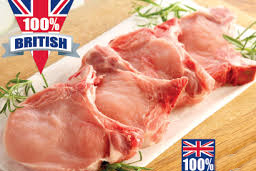Union flag on British meat products will not be banned

The European Commission says it has no plans to impose rules to ban the Union Flag from British meat products.
The commission said media reports that it was planning to introduce new rules over country of origin labelling, which would prevent the use of member state flags on packaging, were “not true”.
“European Commission proposals on the labelling of pre-packaged fresh meat [from sheep, goats, poultry and pigs] will not prevent the use of the Union Jack or of other EU member state flags,” said the commission in a statement.
“Neither will they prevent the use of additional geographical labels such as Welsh or Scottish. Private logos such as the Red Tractor logo will still be permitted, too.”
However, the commission added that it was looking to introduce clearer labelling of member state origin that would make sure “when customers buy meat labelled as British they know it really is British and not, for example, just imported for slaughter.
“This will be done without placing unnecessary burdens on producers and retailers,” it said.
Current discussions in Brussels were focused on “compulsory rules” for labelling of pre-packaged fresh meat, including the clearer specification of member state of origin.
“The use of flags and private logos is a different issue. It will be covered under separate proposed rules on voluntary labels,” said the commission.
“This is because – while the commission has no intention of banning flags and other logos on pre-packaged meat – it does not intend either to propose making them compulsory.”
DEFRA said it would challenge any EU proposals on origin of food labelling that were “bad for UK businesses and carry no meaningful benefits for shoppers”.
The British Retail Consortium (BRC) said food labelling was an “emotive issue” and one of “great importance to UK retailers”.
It said in a statement: “The BRC’s main priority areas in labelling are nutrition labelling and, particularly, the way in which this appears on the front of packs and country of origin labelling.
“Both of these issues, among others, are being reviewed in Europe under the proposed Regulation on Consumer Information.”
Source: Philip Case, Farmers Weekly











